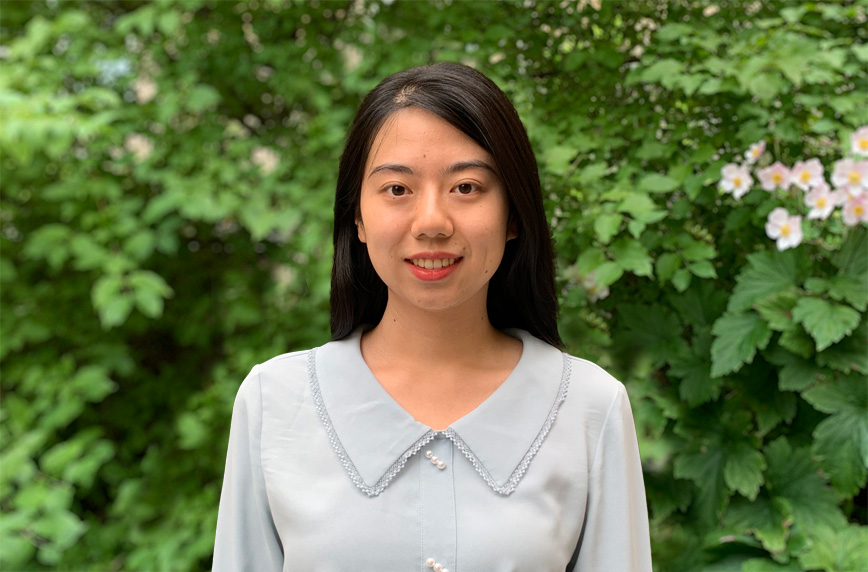Yuqi
Yuqi Zheng is 23 years old and comes from China. Her master's programme is Information and Network Engineering in the School of Electrical Engineering and Computer Science at the KTH main campus. Previously, she completed her bachelor's degree in Electrical and Information Engineering at Harbin Institute of Technology, Shenzhen. She has many hobbies, including reading, watching movies, travelling, and playing the cello.

Why did you choose this master’s programme at KTH?
KTH has an excellent reputation worldwide and is even further ahead in Electrical Engineering and Computer Science. The curriculum of the Information and Network Engineering programme is a perfect match for my interest. Plus, I love the Nordic scenery, culture, and lifestyle. All of these make me believe that KTH will give me an unparalleled study experience.
What are the best aspects of your programme?
I like the curriculum of the Information and Network Engineering programme a lot. Each academic year splits into two semesters, and each semester is divided into two periods. We usually need to study two courses each period, making it easier to concentrate on our studies without being overburdened. After the first period, we choose one specialisation track amongst the four. Each of them has different mandatory courses and a wide variety of elective courses that can be selected according to your research interests. I think the curriculum is very scientific in terms of both difficulty and structure, which is ideal for us to learn more efficiently.
Have you chosen a specialisation track within the programme?
I chose the Multimedia Processing and Analysis track. This track focuses on the analysis and processing of image and video, speech and audio, combined with machine learning techniques, which have been quite popular in recent years. My undergraduate project's subject was MRI image segmentation of brain glioma based on deep learning, and I hope to have more in-depth study in this field. In addition, with the continuous development of artificial intelligence, multimedia processing technology has critical applications and broad development prospects in all aspects.
What are some of your favourite courses so far?
One of my favourite courses is Digital Communication (EQ2310). This course provides a broad introduction to the fundamental principles of communication systems, including modulation, demodulation, information theory, channel coding, etc. It is not only interesting but also builds a solid foundation for subsequent studies.
I also enjoyed the course Speech and Audio Processing (EQ2321) a lot. This was my first exposure to speech and audio processing, which combines the theoretical knowledge of signals we have learned with acoustic principles. All the courses include not only lectures from professors and experts in the industry but also tutorials. We get educated using different sources and perspectives, which is efficient and opens our minds.
How is student life in Stockholm?
Life in Stockholm has brought me a high degree of happiness. The passionate and generous professors, the friendly and optimistic students, and the patient and warm staff make every day of my study here a pleasure. They selflessly provide us with support and encouragement.
The city's beautiful scenery is a gift from nature. Walking along the sea in the summer evening, basking in the sun, enjoying the gentle breeze, passing by the lovely pigeons, and exchanging kind greetings with people all make me feel favoured by life. Also, many museums and beautiful exhibitions provide an excellent way to relax after studying. Life in Stockholm is very safe and comfortable, and it's also very convenient to travel across Europe during holidays.
What would you like to say to students considering choosing KTH for master’s studies?
Every day at KTH makes me not regret my choice. I have gained unprecedented happiness and anticipation for the future. I believe that you will also find joy and meaning in learning and life here at KTH.

